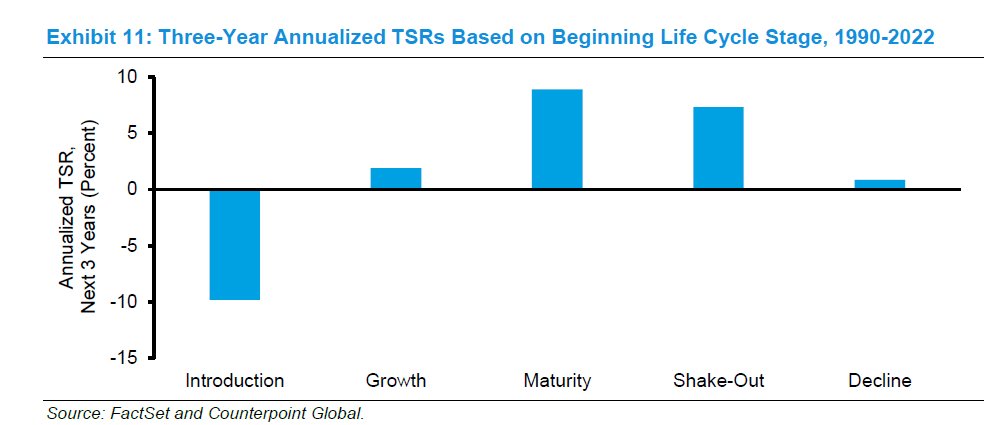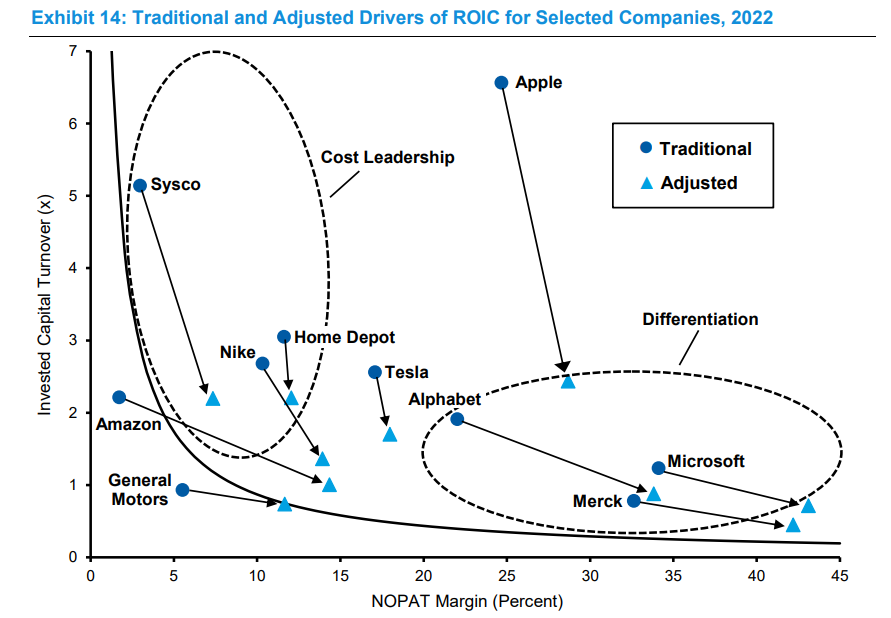In 1999, at the height of the tech bubble, Jeff Bezos sat down for an interview with Playboy Magazine. A few highlights:
davidsheff.com/jeff-bezos
davidsheff.com/jeff-bezos
"I don’t believe any Internet company is appropriate for short-term investors."
"It's too easy to check stock prices and it's a complete waste of time."
"It's too easy to check stock prices and it's a complete waste of time."

I almost spit out my coffee when he talked about dating:
"I am not the kind of person women fall in love with. I sort of grow on them, like a fungus."
"I am not the kind of person women fall in love with. I sort of grow on them, like a fungus."

Looking for a partner who is resourceful:
"I told my friends that my future wife would have to be able to get me out of a Third World prison."
"I told my friends that my future wife would have to be able to get me out of a Third World prison."
Young, nerdy Bezos was either Star Trek's Spock or the Computer
"I was hard to punish as a child because I was very happy to go to my room and read."
"I was hard to punish as a child because I was very happy to go to my room and read."

Starting Amazon:
"Believe it or not, it was illegal to do commerce over the Internet in the spring of 1994."
Timing:
"The first online bookstore started 17 years ago, on 300-baud modems. It was way too early."
"In 1994 we passed the elbow in the curve."
"Believe it or not, it was illegal to do commerce over the Internet in the spring of 1994."
Timing:
"The first online bookstore started 17 years ago, on 300-baud modems. It was way too early."
"In 1994 we passed the elbow in the curve."

But where are the profits?
"It would be incredibly shortsighted to optimize for short-term profitability when we face innumerable opportunities, all of which require investment."
"You have to look at the ratio of mature businesses to new opportunities."
"It would be incredibly shortsighted to optimize for short-term profitability when we face innumerable opportunities, all of which require investment."
"You have to look at the ratio of mature businesses to new opportunities."

"Customers are loyal to us right up until the second that somebody else offers them better service. We live or die based on the customer experience."
"We have been customer obsessed, while our competitors have been Amazon.com obsessed.
"We have been customer obsessed, while our competitors have been Amazon.com obsessed.

Not a book store, a "customer store"
"Customers rank selection as our most valuable asset."
"A lot of what we will do is find and discover things for people."
"Customers rank selection as our most valuable asset."
"A lot of what we will do is find and discover things for people."

"When I meet somebody new, my first question is, “How can we make the experience better for you?”
"I am convinced that we have received more honest feedback from customers in four years than probably any other company has received in 20 years."
"I am convinced that we have received more honest feedback from customers in four years than probably any other company has received in 20 years."

The value of negative reviews:
"The amount you pay isn’t the biggest cost; it's the time you spend with the product afterward. You can spend $20 on a book, but that’s nothing compared with the eight hours of your life that you are going to give to this thing."
"The amount you pay isn’t the biggest cost; it's the time you spend with the product afterward. You can spend $20 on a book, but that’s nothing compared with the eight hours of your life that you are going to give to this thing."

It's always Day One
"As companies get bigger, they have something to lose. They lose their boldness. They lose the spirit to innovate. They lose their pioneering qualities. I am bound and determined not to let that happen to Amazon.com."
"As companies get bigger, they have something to lose. They lose their boldness. They lose the spirit to innovate. They lose their pioneering qualities. I am bound and determined not to let that happen to Amazon.com."

• • •
Missing some Tweet in this thread? You can try to
force a refresh














